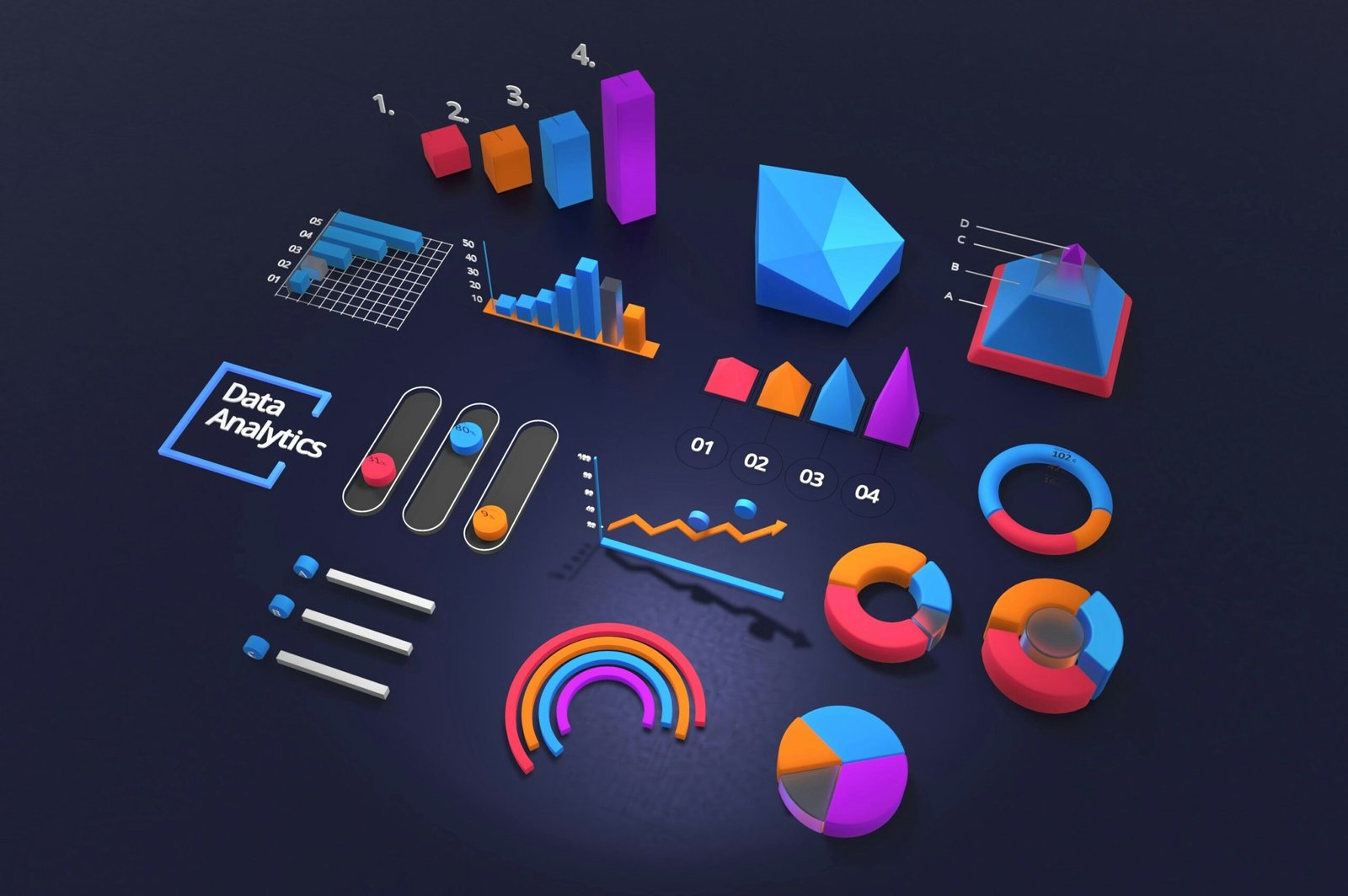Navigating the CRM Landscape: What to Look for in 2024
 Photo by ThisisEngineering on Unsplash
Photo by ThisisEngineering on Unsplash Introduction to the Evolving CRM Landscape
Customer Relationship Management (CRM) systems have undergone significant transformations in recent years. With rapid advancements in technology and the ever-evolving demands of businesses, CRM solutions have adapted to meet the need for more intuitive, efficient, and integrated platforms. In 2024, the CRM landscape is set to be more dynamic than ever, driven by innovations in artificial intelligence (AI), automation, and data analytics.
One of the most notable shifts is the increasing reliance on AI within CRM systems. AI-driven features, such as predictive analytics and automated customer interactions, are enabling businesses to gain deeper insights into customer behavior and preferences. This facilitates more personalized and proactive customer service, which is key to building and maintaining strong customer relationships. Moreover, AI capabilities can streamline tasks like lead scoring, segmentation, and forecasting, allowing sales and marketing teams to focus on strategic initiatives.
Another significant trend is the integration of CRM with various other business tools and platforms. Modern CRM systems now offer seamless connectivity with marketing automation software, customer support modules, and even social media platforms. This interconnectedness ensures that all customer-related data is centralized, providing a holistic view of customer interactions and enhancing the overall customer experience.
Furthermore, the emphasis on data security and compliance is becoming paramount in the CRM arena. With the increasing volume of sensitive customer data being managed by CRM systems, ensuring robust security measures and adherence to regulations like GDPR and CCPA is critical. Businesses are investing in secure CRM solutions that prioritize data protection to maintain customer trust and avoid potential legal repercussions.
Given these trends, staying updated with the latest developments in CRM technology is essential for businesses aiming to maintain a competitive edge. As the CRM landscape continues to evolve, companies must adapt their strategies and tools to leverage the full potential of these advanced systems, ensuring they meet the growing expectations of their customers in 2024 and beyond.
Emerging Technologies in CRM: AI and Machine Learning
The advent of artificial intelligence (AI) and machine learning has revolutionized customer relationship management (CRM) systems, unveiling a plethora of opportunities for companies to enhance their customer interactions and streamline operations. The integration of AI and machine learning into CRM platforms brings predictive analytics, automated customer service, and personalized marketing strategies to the fore, significantly transforming the way businesses approach customer management.
Predictive analytics is one of the foremost applications of AI in CRM, enabling businesses to forecast customer behaviors and trends based on historical data. By leveraging machine learning algorithms, CRM systems can predict potential sales opportunities, identify customer needs, and even anticipate churn. This foresight allows businesses to make proactive decisions, enhancing customer satisfaction and ultimately driving revenue growth.
Automated customer service is another groundbreaking application. AI-driven chatbots and virtual assistants can handle routine customer inquiries, providing instant, accurate responses round the clock. By automating these interactions, companies can ensure consistent and swift support, reducing wait times and boosting customer satisfaction. Moreover, these systems can learn from each interaction, continually improving their responses and handling more complex queries over time.
Personalized marketing strategies are indispensable in today’s customer-centric market. AI and machine learning facilitate hyper-personalization by analyzing customer data to create individualized marketing messages, product recommendations, and targeted promotions. This deep understanding of customer preferences and behaviors allows marketers to deliver highly relevant content, thereby increasing engagement and conversion rates.
The benefits of incorporating AI and machine learning into CRM systems extend beyond mere customer interactions. These technologies provide enhanced customer insights, revealing intricate patterns and tendencies that traditional analytics might overlook. Furthermore, they drive operational efficiency by automating routine tasks, allowing human resources to focus on more strategic activities.
As AI and machine learning continue to evolve, their integration into CRM systems is set to become even more profound, promising unprecedented improvements in customer engagement and operational performance. Companies that leverage these technologies will not only stay ahead in the competitive landscape but also foster deeper, more rewarding customer relationships.
The Rise of Integration: CRM and Other Business Tools
In today’s rapidly evolving business landscape, the integration of Customer Relationship Management (CRM) systems with other essential business tools has become a pivotal trend. As we approach 2024, the seamless assimilation of CRM systems with Enterprise Resource Planning (ERP) software, marketing automation platforms, and social media networks is not merely an option, but a necessity. Such integration can significantly enhance productivity, improve data accuracy, and provide a comprehensive view of customer interactions, thereby driving business success.
By integrating CRM systems with ERP software, businesses can streamline operations across various departments, ensuring that customer information is consistently up-to-date and accessible. For instance, companies that have successfully integrated their CRM with ERP solutions often experience smoother order processing, improved inventory management, and more efficient supply chain operations. Such synergy ensures that sales, finance, and operations teams have a unified view of customer transactions, leading to more informed decision-making and enhanced customer service.
Marketing automation platforms, when integrated with CRM systems, empower businesses to craft personalized and timely marketing campaigns based on precise customer data. This integration allows for the automatic synchronization of customer interactions and preferences, making it easier for marketing teams to segment audiences and tailor communications. For example, businesses leveraging this integration have reported increases in email open rates and conversion rates, underscoring the value of targeted marketing efforts driven by comprehensive customer insights.
Social media platforms offer another layer of valuable customer data. Integrating CRM systems with social media tools enables businesses to capture and analyze customer sentiments, preferences, and behavior in real-time. This integration facilitates proactive customer engagement, allowing businesses to promptly address concerns and capitalize on positive feedback. Companies that have embraced this integration have seen improved customer satisfaction rates and a stronger online presence.
In essence, the trend of integrating CRM systems with a variety of business tools exemplifies the pursuit of a holistic approach to customer relationship management. By connecting diverse data sources and enhancing operational efficiency, businesses can attain a deeper understanding of their customers, ultimately driving growth and fostering long-term loyalty.
User Experience and Customization: Meeting Diverse Needs
As businesses continue to navigate the evolving landscape of Customer Relationship Management (CRM) systems, prioritizing user experience (UX) and customization becomes crucial. A user-friendly interface not only reduces the learning curve but also enhances productivity and adoption rates among employees. In 2024, companies are increasingly recognizing that their CRM software needs to be intuitive and adaptable to varying business requirements.
One of the most noteworthy trends in user interfaces recently is the shift toward minimalistic designs, which provide a clean, uncluttered environment. This approach facilitates easier navigation and more efficient data entry, thereby improving overall user satisfaction. Additionally, interactive dashboards are becoming standard, offering real-time data visualization that allows users to track key performance indicators (KPIs) at a glance.
Mobile accessibility is another critical factor driving CRM effectiveness. With the growing reliance on remote work, sales teams, and customer service representatives benefit significantly from mobile-optimized CRM systems. These platforms ensure that vital customer data and interaction histories are readily available anytime, anywhere, greatly enhancing responsiveness and decision-making capabilities. Progressive web apps (PWAs) and native mobile applications that offer seamless cross-platform functionality are becoming essential for businesses striving for agility.
Customization extends beyond merely adjusting interface elements; it incorporates tailoring the CRM’s functionalities to mirror specific business workflows. Modern CRM systems are increasingly offering modular architecture, allowing companies to activate only those features that are pertinent to their operations. For instance, a retail business may focus on features like inventory management and customer promotions, whereas a B2B enterprise might prioritize lead tracking and contract management. Such flexibility ensures that the system grows with the business, adapting to changing needs over time.
By incorporating user experience best practices and offering extensive customization options, CRM vendors are helping companies enhance their customer engagement strategies efficiently. The overall aim is to ensure that CRM systems are not just tools but integral components of an organization’s long-term growth strategy.
Data Security and Privacy: Protecting Customer Information
In the realm of Customer Relationship Management (CRM), data security and privacy have emerged as paramount concerns. As organizations increasingly rely on CRM systems to manage customer interactions and store sensitive information, safeguarding this data has become crucial to maintaining trust and compliance with legal standards. Key regulatory frameworks like the General Data Protection Regulation (GDPR) and the California Consumer Privacy Act (CCPA) set stringent requirements for handling personal data, making it essential for businesses to adopt robust security measures.
GDPR, which affects all organizations processing data of EU citizens, mandates strict guidelines on data collection, storage, and usage, requiring explicit consent from customers. Similarly, the CCPA enforces transparency and control over personal information for California residents, giving them rights to access, delete, and opt-out of data sales. Compliance with these regulations not only prevents legal repercussions but also reinforces customer trust, which is integral to a CRM’s success.
To effectively protect customer information, businesses should implement best practices such as data encryption, regular security audits, and access controls. Encryption ensures that data remains unreadable to unauthorized users, while security audits help identify vulnerabilities before they can be exploited. Access control mechanisms ensure that only authorized personnel can view or modify sensitive information, minimizing the risk of internal breaches.
The implications of data breaches in the CRM landscape are severe, leading to potential financial losses, reputational damage, and erosion of customer trust. High-profile breaches highlight the necessity for comprehensive security strategies. Investing in advanced security technologies, like multi-factor authentication and Intrusion Detection Systems (IDS), can further fortify defenses against cyber threats.
Building trust with customers goes beyond just meeting regulatory requirements; it involves demonstrating a commitment to safeguarding their data. Transparent communication about how data is used and protected, prompt responses to security incidents, and continuous improvement of data protection measures are key to establishing and maintaining this trust. As the CRM landscape evolves, prioritizing data security and privacy will remain a cornerstone of effective customer relationship management.
The Shift Towards Cloud-Based CRM Solutions
As we advance into 2024, the landscape of Customer Relationship Management (CRM) is witnessing a significant shift towards cloud-based solutions. This evolution is driven by the growing need for scalability, cost efficiency, and enhanced accessibility among businesses. Traditional on-premise CRM systems, while offering robust functionalities, often come with limitations that can hinder a company’s growth and adaptability.
One of the primary advantages of cloud-based CRM solutions is their scalability. These systems can effortlessly accommodate a business’s growth, allowing for an easy expansion of resources and capabilities as the need arises. This flexibility is crucial in today’s fast-paced market where companies must quickly adapt to changing customer demands and market conditions.
Cost reduction is another significant benefit of cloud-based CRM systems. Companies can avoid the hefty upfront costs of hardware, software, and maintenance typically associated with on-premise solutions. Instead, cloud-based CRMs offer a subscription-based model, enabling businesses to predict and manage their expenses more effectively. Additionally, this model eliminates the need for large IT teams to handle system upkeep, further reducing operational costs.
Remote accessibility is a key feature that distinguishes cloud-based CRM solutions from their on-premise counterparts. With the ability to access the CRM system from anywhere with an internet connection, businesses can ensure uninterrupted operations. This is particularly beneficial for organizations with a distributed workforce or those that require constant access to customer data while on the move.
Furthermore, cloud-based CRM solutions provide continuous updates and improvements. These systems are regularly updated with the latest features and security patches, ensuring that businesses always have access to the most advanced and secure tools. This continuous innovation helps companies stay ahead of the competition and meet emerging market trends and customer expectations.
The transition to cloud-based CRM systems may seem daunting, but with careful planning and execution, businesses can make the shift smoothly. It is essential to assess current and future business requirements, choose a reliable vendor, and develop a comprehensive migration strategy. By leveraging the benefits of cloud-based CRM solutions, companies can enhance their customer relationships and drive long-term success.
Customer-Centric Strategies: Enhancing Engagement and Loyalty
In the evolving CRM landscape of 2024, prioritizing customer-centric strategies is paramount in enhancing engagement and loyalty. Central to these strategies is the adoption of personalized communication. Tailoring interactions based on individual customer preferences, behaviors, and past interactions can significantly enhance the customer experience. Techniques such as utilizing customer data analytics to segment audiences and delivering tailored content through preferred channels ensure that communication feels more relevant and engaging.
Loyalty programs continue to play a crucial role in retaining customers. Today’s advanced CRM systems offer seamless integration of loyalty programs that reward repeat customers. By offering personalized rewards, exclusive offers, and point-based incentives, businesses can foster a sense of appreciation and deepen customer loyalty. Effective loyalty programs not only incentivize continued patronage but also transform satisfied customers into brand advocates.
Implementing robust feedback systems is another essential strategy for enhancing customer engagement and loyalty. Actively soliciting feedback through surveys, reviews, and direct communication helps businesses understand customer needs and pain points. Advanced CRMs now come equipped with tools to analyze this feedback, providing actionable insights that drive continuous improvement. This approach not only addresses customer concerns promptly but also demonstrates a genuine commitment to customer satisfaction, further strengthening trust.
Several organizations have successfully adopted customer-centric CRM strategies with substantial results. For instance, a well-known retailer revamped its CRM approach by integrating AI-driven analytics to tailor its communication. This led to a 20% increase in customer engagement within the first quarter. Another example is a global hotel chain that implemented an extensive loyalty program, offering tailored experiences and exclusive rewards. Their CRM-informed strategy resulted in a 25% increase in repeat bookings and higher customer retention rates.
To thrive in 2024, businesses must embrace these customer-centric CRM strategies. By leveraging personalized communication, robust loyalty programs, and comprehensive feedback systems, organizations can enhance customer engagement and loyalty, driving sustained growth and competitive advantage in the marketplace.
Future Outlook: Preparing for CRM Trends Beyond 2024
The CRM landscape is constantly evolving, driven by emerging technologies and shifting customer expectations. Looking beyond 2024, businesses must prepare for significant advancements that will reshape how they engage and manage customer relationships. Key trends include the integration of artificial intelligence (AI) and machine learning (ML), the expansion of omnichannel communication, and increased emphasis on data privacy and security.
AI and ML are poised to revolutionize CRM systems by enhancing predictive analytics and enabling more personalized customer interactions. These technologies will allow businesses to anticipate customer needs, streamline operations, and offer more tailored experiences. For example, AI-driven chatbots will provide real-time support, while ML algorithms will help identify patterns and trends in customer behavior, facilitating proactive engagement strategies.
Omnichannel communication will become even more vital as customers expect seamless interactions across various platforms and devices. Future CRM systems must integrate and synchronize data from multiple channels, such as social media, email, and instant messaging, to provide a cohesive and consistent customer experience. This will require businesses to invest in advanced CRM solutions capable of managing complex customer journeys and ensuring that every touchpoint is optimized for engagement and satisfaction.
As data privacy concerns continue to grow, adherence to stringent regulations like GDPR and CCPA will be crucial. Businesses must prioritize the protection of customer data by implementing robust security measures and maintaining transparency in their data collection and usage practices. This will not only build trust but also prevent potential legal and financial repercussions.
To stay ahead of these evolving trends, businesses should consider the following actionable steps: – Continuously monitor technological advancements and assess their applicability to your CRM strategy- Invest in training and development to ensure your team is proficient with new tools and systems- Foster a culture of innovation that encourages experimentation and the adoption of cutting-edge solutions- Collaborate with technology partners and vendors to stay updated on the latest CRM capabilitiesBy proactively addressing these future trends and challenges, businesses can ensure their CRM strategies remain robust and effective, ultimately maintaining a competitive edge in an ever-changing market.



Tidak ada komentar